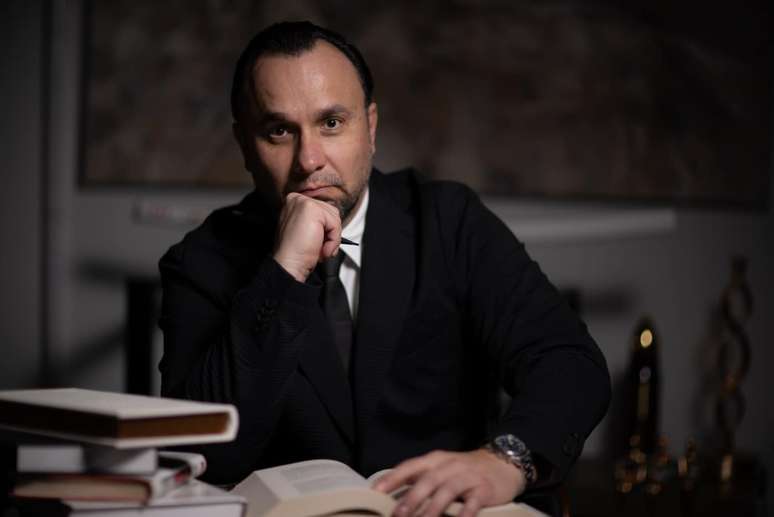A mix of genetic and environmental factors is decisive for the development of exceptional abilities in the first years of life. The expert emphasizes that parents must be careful so that the genius does not become a burden that continues throughout childhood, adolescence and even adulthood.
Surely you have met – in your family, in the neighborhood or on television programs – children who have extraordinary and surprising abilities for their age.
Some are excellent at mathematics, others are born with an exceptional ability to play a musical instrument.
There are also those who exceed all expectations in a sport or create drawings with the skill of a master of fine arts.
But what are the factors that influence the formation of a “little genius”? And is it possible to stimulate intelligence – or at least some skills – from an early age?
To find answers to these and other questions, BBC News Brasil spoke to Dr. Magda Lahorgue Nunes, professor of Neurology at the Pontifical Catholic University of Rio Grande do Sul (PUC-RS) and researcher at the Brain Institute (InsCer) , in Porto Alegre.
The specialist, who also coordinates the Neurology Department of the Brazilian Society of Pediatrics, points out that the concept of childhood genius has undergone a series of transformations in recent years – and today there are more ways to understand and evaluate intelligence in the early years of childhood. life.
It also warns of the risk of certain gifts and abilities becoming a burden if the child begins to be recognized and overtaxed for them.
Where genius is born
Nunes recalls that, for many decades, the IQ (intelligence quotient) test was the main, if not the only, way to measure someone’s cognitive abilities.
It’s worth pointing out here that IQ is a type of test that evaluates a range of abilities. It is applied to hundreds or thousands of individuals of different age groups. From there you can define an average result for each age and highlight those who deviate from the curve, i.e. those who perform better or worse on the test.
“More recently, we have begun to observe genius in individuals who possess extraordinary creative and innovative abilities,” he says.
“The IQ test remains one of the tools, but the definition of this genius has become broader and a little more ambiguous.”
But where does this unusual intelligence come from and how does it arise?
The most recent scientific evidence indicates that there are a series of factors that, together, explain these cases, according to the neuropediatrician.
“Evidently there must be a genetic basis, even if we have not yet found specific genes linked to this problem,” he underlines.
“Secondly, we must take into account the environment in which the child grows up, which has a direct impact on his behavioral and cognitive problems,” adds the neuropediatrician.
In practical terms, if the individual receives age-appropriate intellectual stimulation from an early age, this helps stimulate the brain and certain abilities.
“A supportive environment is not necessarily full of expensive toys. The most important thing is to grow up in a home where that child is stimulated, cared for and loved,” teaches Nunes.
A study conducted by Finnish, Swedish, Austrian, Spanish and German institutions published in 2022 attempted to explain what the determinants of advanced cognitive performance were in children and adolescents.
The authors conclude that a mix of activities brings benefits in terms of intelligence, especially when they are cognitively demanding.
“Reading is positively associated with cognitive performance, regardless of age, and should be encouraged,” they point out.
Still within the scope of external factors, the impact of good nutrition and physical activity cannot be ignored. Studies suggest that both influence cognitive development in any age group.
Finally, there is also the role of positive reinforcement. Parents who observe in their children a certain aptitude for music or football, for example, tend to give them instruments or soccer balls and pay more attention to how these skills develop.
Read also:

A precious window
But is there some area of the brain that is overdeveloped in these little genes?
Nunes points out that for a long time it was believed that above-average intelligence was linked to the level of maturation of a region of gray matter called the prefrontal cortex, which is located in the region near the forehead.
“But today, thanks to studies with functional magnetic resonance imaging and other techniques, we know that this area linked to intelligence is much broader,” explains the doctor.
“It’s not actually about a specific location. The most important thing here is the network of neurons and how these cells connect and interact with each other,” he adds.
One of the studies detailing these aspects was published in 2014 by experts from the Basque Center for Cognition, Brain and Language, in Spain, and the Universities of California at Berkeley and Davis, in the United States.
“Improvements in higher cognitive functions from childhood to adulthood reflect the integration of complex, widely distributed brain systems,” the scientists write.
In other words, the way in which neurons, responsible among other things for the transmission of nerve impulses related to reasoning and memory, “speak” and create strong connections seems to be decisive.
According to researchers, in fact, the formation of a solid neuronal network from childhood is important throughout life and can even delay the appearance of signs of dementia in old age.

Nunes adds that, during our education, there is a precious window in which cognitive stimuli carry even deeper impacts.
“This brain plasticity is maximum up to the age of three,” he points out.
In this context the term plasticity refers precisely to this ability of nerve cells to modify themselves and establish strong connections through learning and external stimuli.
Nunes highlights the work of American economist James Heckman. He defends the idea that investing in early childhood, in these first years of life, is the main strategy to train citizens with greater skills and abilities.
“And this has a basis in neuroscience, because we are talking about the period of maximum brain capacity,” he says.
“Therefore, if the individual receives this initial support, it becomes easier for them to achieve better outcomes and have a higher quality of life later on.”
And, for those who already naturally possess an unusual intelligence or an exceptional specific ability, these stimuli can represent the necessary leap to reach a certain status of genius in a certain area of knowledge.
“On the other hand, a person may also have a certain ability, but if he grows up in an unfavorable environment, he does not develop it,” notes Nunes.
It’s worth considering that, although the first three years of life are indeed this precious window, exercising the brain at any age is essential to maintaining sharp memory and reasoning.
Read also:

When genius becomes a burden
Nunes warns that depending on how outside-the-box intelligence is viewed by older people, it can become a source of angst for younger people.
“It’s good for parents to recognize their children’s abilities and encourage them,” he stresses.
“But the child cannot acquire that very ability. We may be dealing with a mathematical genius, but he is still a child.”
This happens when the boy or girl is recognized only for the gift they have, and they can no longer do anything else or are even discouraged from exploring other areas of knowledge.
“At that moment, it stops being something the child enjoys, is happy to do, and becomes a burden,” emphasizes the neuropediatrician.
“The role of parents here is to seek a balance and never place such great responsibilities or expectations on young children,” he concludes.
Source: Terra
Rose James is a Gossipify movie and series reviewer known for her in-depth analysis and unique perspective on the latest releases. With a background in film studies, she provides engaging and informative reviews, and keeps readers up to date with industry trends and emerging talents.






